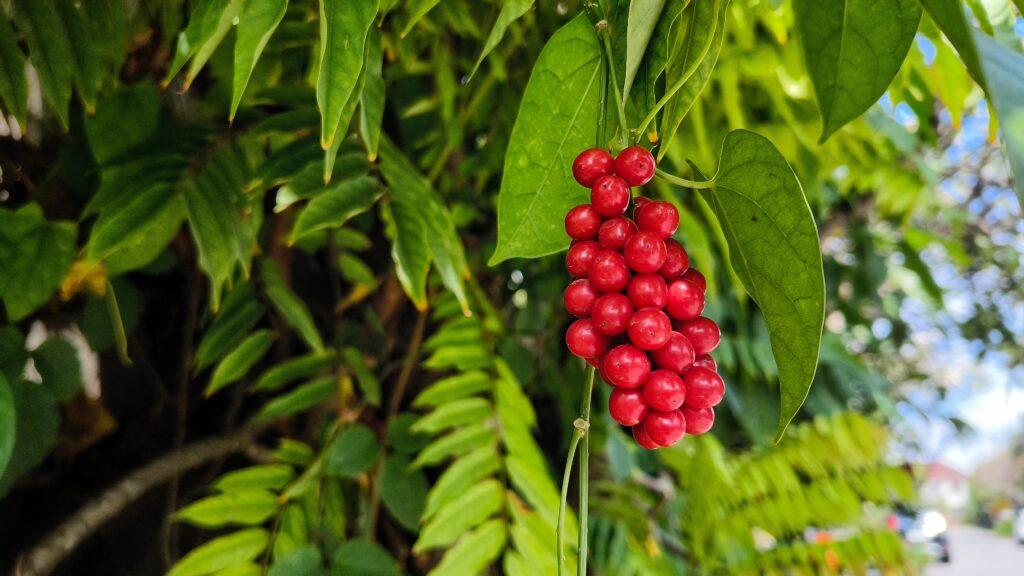By Kathy Abascal
Adaptogens are remarkable plants. They increase our ability to handle stress, both physical (such as an illness or injury) and mental (such as a difficult job or financial issues), and most of us would benefit greatly by taking them regularly.
I was taught that adaptogens will not solve our problems, but instead put us in a place where life’s tribulations do not bother us as much. You can be yelled at longer before you lose it and yell back. You can endure more traffic jams before you go nuts. And they help your body, for instance, fight off a virus without getting really sick.
Adaptogens work well for those who seem to catch every cold that goes around, or who are coping with a significant injury or chronic illness. These herbs do not act quickly enough to help you get over the flu or take the edge off acute anxiety, but they can make a significant difference when taken for 6 to 8 weeks or longer.
Almost all of us lead stress-filled lives and most of us would benefit from taking an adaptogen regularly. There are many different adaptogens, each with an individual profile and set of actions. A fabulous book that teases out the differences between adaptogens is David Winston’s book “Adaptogens.” However, what all adaptogens have in common is an ability to help the brain reduce its tendency to hyper-react to stress. A calmer person sleeps better, works better, and usually has a stronger immune system.
The ginsengs (Asian and American) are the most famous adaptogens, but they are challenged plants, expensive, and most often adulterated, so I tend to recommend other adaptogens. Two I like are schisandra (Schisandra chinensis) and rhodiola (Rhodiola rosea).
Schisandra is an interesting-tasting berry and has a long historical use of improving many conditions, with a particular use in reducing or stopping unwanted sweating (including night sweats). It is also used for coughs, forgetfulness, and insomnia. Indigenous folk used the berries to combat fatigue on long hunting trips. Research shows it helps revive liver cells damaged by alcohol, toxins, or viral hepatitis. Its constituents improve reflexes, fine coordination, blood pressure, and stamina.
Human studies on schisandra are for the most part not available in English, but apparently show that schisandra improves eyesight and hearing. For instance, schisandra increased the ability of young men to thread a needle! Western research has focused more on schisandra’s effect on horses: Horses could be made to run faster with less increase in heart rate, and schisandra seemed to reverse muscle damage in horses no doubt pushed too hard.
If I had a horse, I would add some schisandra berries to its feed. If I had high blood pressure or were a perimenopausal woman suffering from insomnia, night sweats, and forgetfulness, I would take schisandra regularly. If I felt like I needed liver support, I would turn to schisandra.
Rhodiola is a favorite herb in the Scandinavian and Russian traditions. Today, it is also grown in Alaska, making good-quality rhodiola quite available. Research indicates that it may stimulate the nervous system, reduce depression, and alleviate altitude sickness. The Russians have used it as a support where physical or intellectual strain, flu, or other illness caused sleep disturbances, irritability, headaches, and fatigue, which in turn affected peoples’ work ability.
The Russians also use rhodiola as a tonic for overworked, stressed-out people, and have some interesting research supporting that view. In one study, they gave it to overworked emergency room doctors and found that rhodiola substantially reduced their fatigue while improving their work performance while on night duty. They also gave it to medical students preparing for exams. The students reported less fatigue, improved sleep, less need for sleep, and more motivation study. Those taking rhodiola also got better grades than those on a placebo. Last, they gave rhodiola to foreign students and found that they were less “psychically fatigued” and anxious. (The study also suggests that it is a challenge to be a foreign student in Russia.)
One very nice aspect of rhodiola is that it is energizing at lower doses, but becomes slightly sedative at higher doses. Thus, it has built-in safeguards for those who might be looking for a bit too much stimulation.
As mentioned above, the effect of an adaptogen builds over time, so they typically need to be taken regularly for some duration to really be of benefit. My sense is that now, as winter approaches, is a good time to start taking an adaptogen to help handle holiday stress and winter illnesses.

